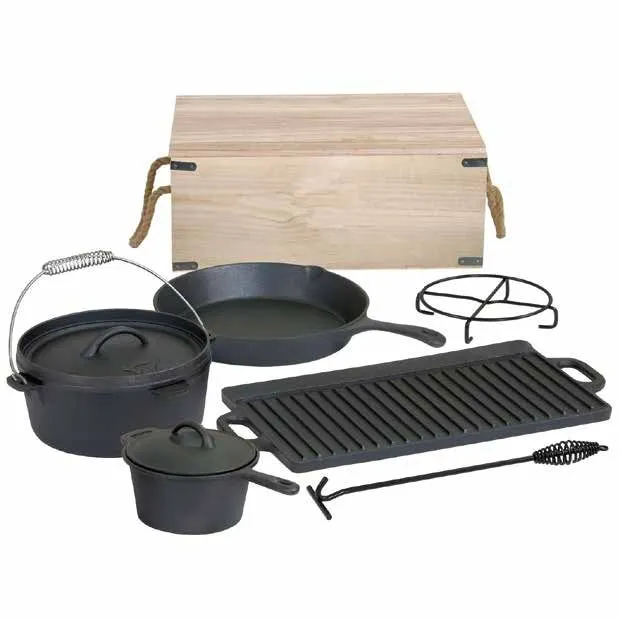
Comparing Budget and High-End Cast Iron Cookware for Best Cooking Experience
Cheap Cast Iron vs. Expensive Cast Iron A Comparative Analysis
When it comes to cooking, cast iron cookware has carved a niche for itself among culinary aficionados and home cooks alike. Its ability to retain heat, provide even cooking, and impart unique flavors makes it a sought-after material for skillets, dutch ovens, and more. However, with a wide range of options available, one of the most prevalent debates is between cheap cast iron and expensive cast iron. This article explores the differences, advantages, and disadvantages of each to help consumers make informed choices.
The Basics of Cast Iron
Cast iron cookware is made from molten iron that is poured into molds and allowed to solidify. The result is a dense and durable material capable of withstanding high temperatures and providing excellent heat retention. Cast iron cookware can be seasoned to create a natural non-stick surface, making it ideal for various cooking techniques—frying, baking, and braising, to name a few.
Cheap Cast Iron Pros and Cons
Cheap cast iron cookware is readily available in many kitchen supply stores and online markets. Priced lower than premium brands, it often attracts budget-conscious consumers.
Pros
1. Affordability The most significant draw is the low price point. For those on a tight budget, cheap cast iron offers an accessible entry into the world of cast iron cooking.
2. Availability It’s easy to find inexpensive cast iron products in various shapes and sizes, allowing for versatility in cooking.
3. Basic Functionality Even at a lower price, cheap cast iron can still perform well for basic cooking needs. It’s capable of retaining heat and distributing it evenly, which makes it functional for frying and baking.
Cons
1. Quality Cheap cast iron often lacks the craftsmanship found in more expensive offerings. This can lead to uneven surfaces, rough finishes, and potential issues with seasoning.
2. Durability While cast iron is inherently strong, cheaper brands may use lower-quality materials that compromise longevity. Users may find their pans warping or cracking over time.
cheap cast iron vs expensive

Expensive Cast Iron Pros and Cons
On the other end of the spectrum, expensive cast iron cookware is often viewed as a worthy investment for serious cooks.
Pros
1. Superior Quality Premium cast iron cookware is usually crafted with an emphasis on quality and craftsmanship. This means smoother finishes, better seasoning capabilities, and an overall more reliable cooking experience.
2. Longevity Higher-end pieces are generally made to last a lifetime or longer, offering better heat retention and distribution, which enhances cooking results.
3. Versatile Designs Expensive cast iron manufacturers often focus on aesthetics and functionality, providing a range of designs that can also serve as attractive serving dishes.
Cons
1. Cost The most obvious downside is the price. Investing in expensive cast iron may not be feasible for many home cooks, especially those who are just starting.
2. Heavier Weight Higher-quality cast iron can be heavier, which may be an issue for some individuals when handling cookware, especially when it’s full.
3. Overkill for Casual Cooks For those who only occasionally cook or who are not particularly passionate about culinary pursuits, spending a premium on cast iron may not be necessary.
Conclusion
When deciding between cheap and expensive cast iron cookware, consumers should consider their cooking habits, budget, and long-term intentions. Cheap cast iron can serve as an excellent introduction to cast iron cooking, but for those who prioritize performance and durability, investing in higher-quality cookware may yield significant rewards in the kitchen. Ultimately, whether to opt for budget or premium options hinges on individual preferences and cooking needs.
-
Season Cast Iron Perfectly with GPT-4 Turbo TipsNewsAug.01,2025
-
High Quality Cast Iron Cookware - Baixiang County Zhongda MachineryNewsAug.01,2025
-
Premium Cast Iron Pan: Durable & Perfect HeatNewsAug.01,2025
-
High Quality Kitchen Durable Black Round Cast Iron Cookware Pancake Crepe Pan-Baixiang County Zhongda Machinery Manufacturing Co., Ltd.NewsAug.01,2025
-
Cast Iron Cookware - Baixiang County Zhongda Machinery | Nonstick, Heat ResistanceNewsAug.01,2025
-
High Quality Kitchen Durable Black Round Cast Iron Cookware - Baixiang County Zhongda Machinery | Non-Stick, Heat Retention, DurableNewsJul.31,2025


